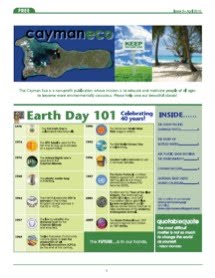
Posted by Yale Environment 360
The melting of Antarctic ice has allowed large blooms of tiny marine phytoplankton to flourish, creating a significant new biological sink for carbon, according to a new study by the British Antarctic Survey. Over the last five decades, retreating glaciers around the Antarctic Peninsula have opened about 24,000 square kilometers of open water that has been colonized by the carbon-absorbing phytoplankton, according to the study being published in the journal Global Change Biology. After the phytoplankton dies, it eventually sinks to the ocean floor where it can store carbon for thousands or millions of years. The researchers estimate this new carbon sink will absorb about 3.5 million tons of carbon from the ocean and atmosphere annually. “Although this is a small amount of carbon compared to global emissions of greenhouse gases in the atmosphere, it is nevertheless an important discovery,” said the study's lead author, Lloyd Peck. The authors called the new bloom the second largest factor acting against climate change so far discovered on Earth (the largest being new forest growth in the Arctic)...read full story.







No comments:
Post a Comment